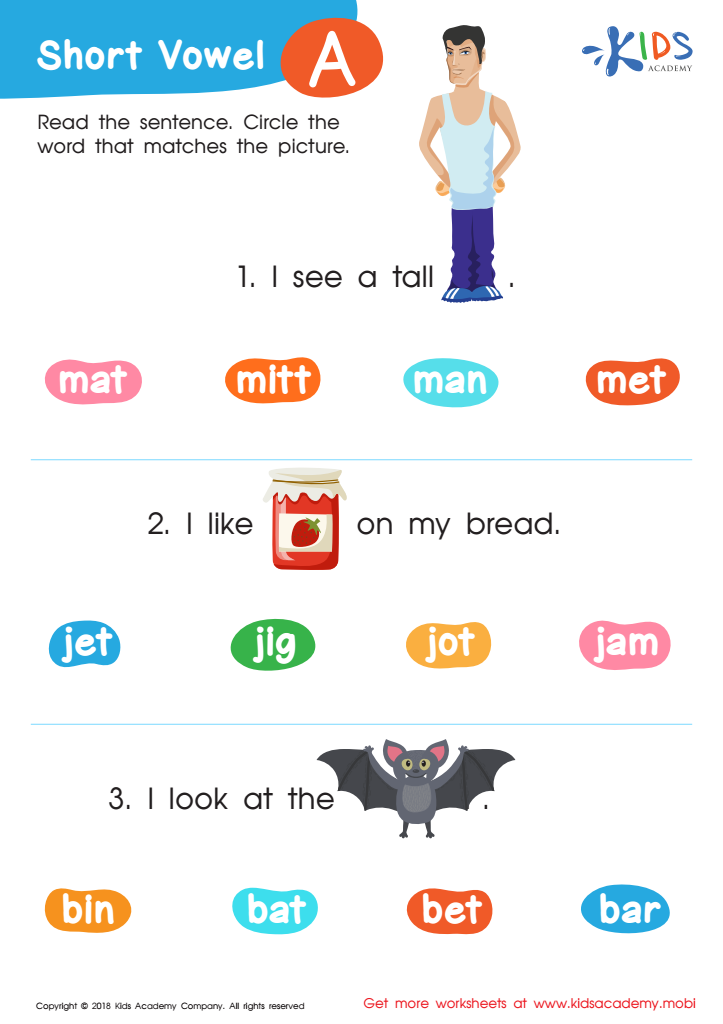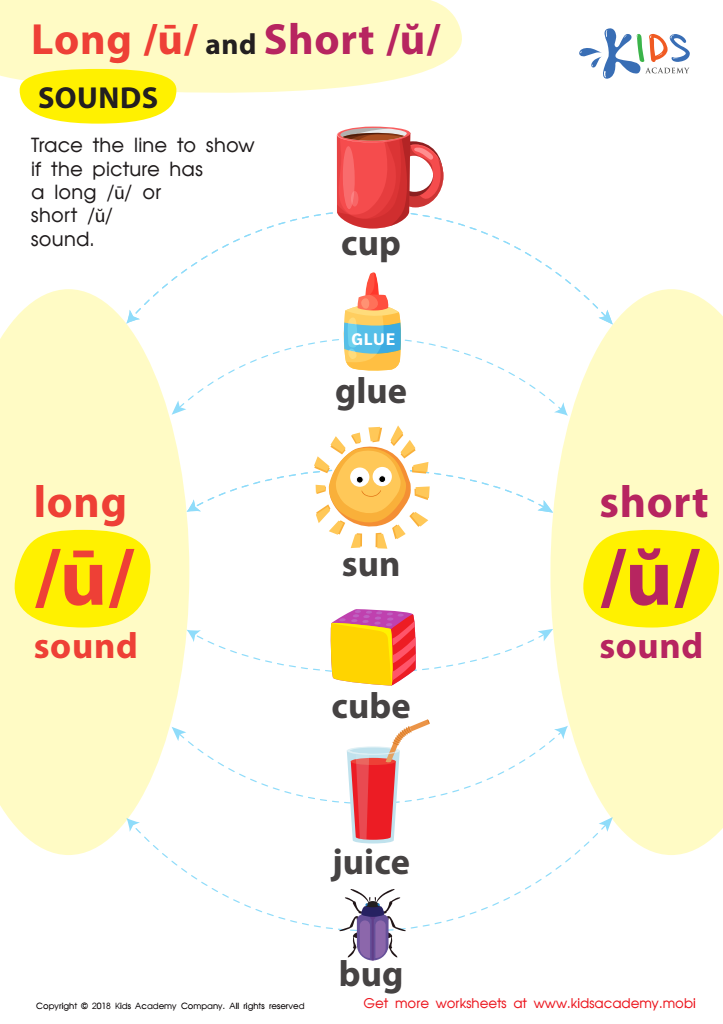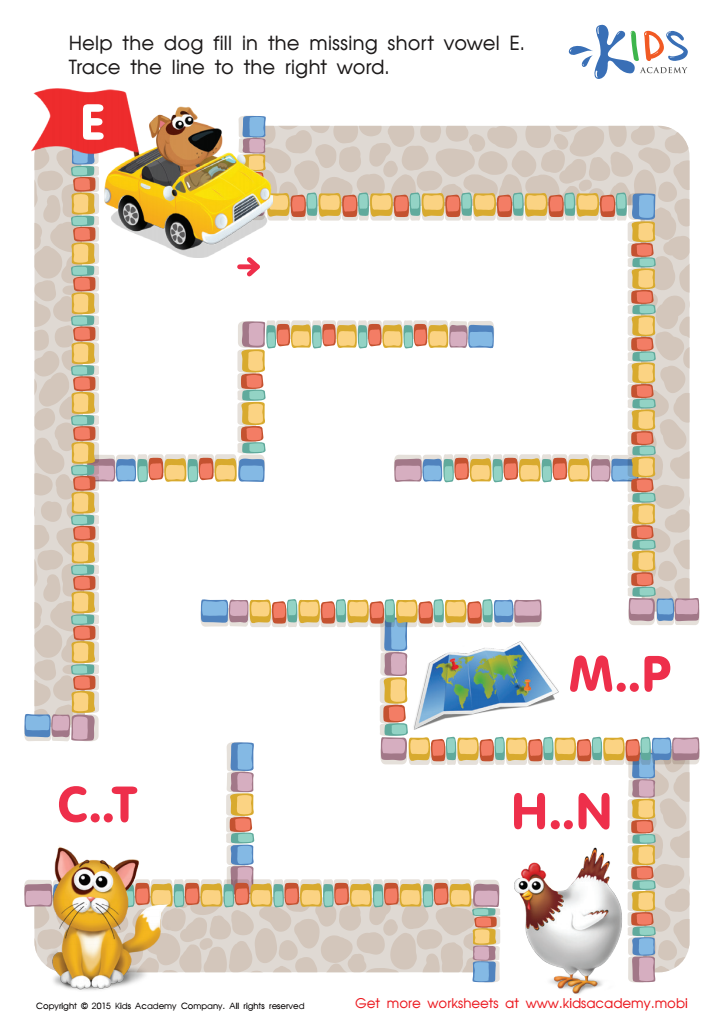Vowel Recognition Letter Recognition Worksheets for Ages 5-7
5 filtered results
-
From - To
Boost your child's literacy skills with our engaging Vowel Recognition and Letter Recognition Worksheets designed for ages 5-7! These colorful, interactive worksheets make learning fun while helping young learners identify vowels and their sounds. Featuring a variety of creative activities such as tracing, coloring, and matching, these resources are perfect for reinforcing letter knowledge in an enjoyable way. Our worksheets cater to different learning styles, ensuring every child can grasp the fundamentals of reading. Designed by education experts, they are ideal for both classroom settings and home practice. Start your child's reading journey today and watch their confidence soar!


Short Vowel /a/ Worksheet


Short Vowels /e/, /i/, and /u/ Worksheet


Reading: Long U and Short U Sounds Worksheet


Long Vowel Maze /o/ and /i/ Worksheet


Short Vowel Sound E Worksheet
Vowel recognition and letter recognition are fundamental building blocks for early literacy, especially for children ages 5-7. During this critical developmental stage, children learn to recognize vowels and consonants, which are essential for reading and writing. Vowel recognition specifically helps children understand the phonetic structure of words, enabling them to decode unfamiliar words and improve their spelling skills.
For parents and teachers, nurturing vowel and letter recognition skills fosters a positive literacy environment. Engaging children through fun and interactive activities can enhance their enthusiasm for learning. Mastering these skills at an early age sets the foundation for more complex language concepts, such as word formation, grammar, and comprehension.
Additionally, strong literacy skills contribute to overall academic achievement and confidence. Children who struggle with letter and vowel recognition may find reading frustrating, leading to a lack of motivation. By prioritizing these skills, parents and teachers can help build resilience and a love for literacy that extends beyond the classroom.
Ultimately, investing time in vowel and letter recognition allows children to become proficient readers and writers, paving the way for lifelong learning and success.

 Assign to My Students
Assign to My Students















